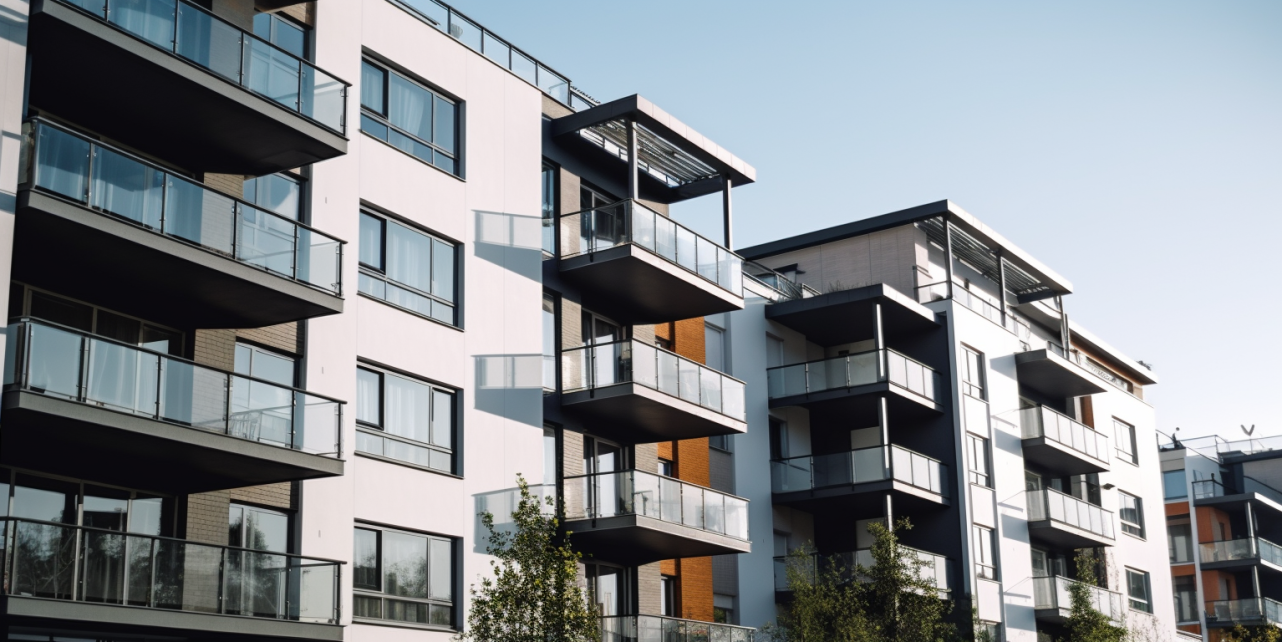How much an apartment complex costs depends on a variety of factors, including the size and location of the complex, the type of building, and the amenities available. A smaller complex with limited amenities may cost around $500,000. A complex located in an up-and-coming neighborhood will likely cost more. For a complex with larger units and more amenities, the cost may range from $2.5 million to $10 million. Additionally, the cost of running and maintaining can add up quickly, depending on the age and condition of the building, as well as the costs for utilities, upkeep, and repairs.
Factors That Influence the Cost
The cost can be affected by several factors, such as size, location, type of building, and amenities. Generally, a small complex with limited amenities may cost around $500,000, while a larger complex will cost more. Additionally, running and maintaining includes expenses for utilities, upkeep, and repairs, and these costs can vary depending on the building’s age and condition.
What to Expect When Purchasing
When purchasing an apartment complex, buyers should be aware of the cost of the building, which is dependent on factors such as size, location, type of building, and amenities. Additionally, purchasing comes with running and maintaining expenses for utilities, upkeep, and repairs, which can vary depending on the building’s age and condition.
Factors to Consider Before Investing
Before investing, potential investors should consider the building’s size, location, type of building, and amenities, as well as the cost of running and maintaining the complex, which includes expenses for utilities, upkeep, and repairs. Additionally, investors should evaluate the age and condition of the building to ensure they can cover the necessary costs to keep the apartment complex up and running.
Cost of Operating and Maintaining an Apartment Complex
The cost of running and maintaining an apartment complex can vary depending on factors such as the building’s age and condition, and the costs for utilities, upkeep, and repairs. When purchasing an apartment complex, investors should evaluate the relevant costs, as well as the building’s size, location, type of building, and amenities, to ensure they can cover all necessary expenses.
Benefits of Investing in an Apartment Complex
Investing in an apartment complex can be a great way to generate a steady stream of passive income. Apartment complexes can provide investors with cash flow through rent payments, and the value of the building may increase over time. Additionally, investing in an apartment complex is a less risky investment than stocks or other real estate investments, as apartment complexes tend to be located in areas that are less impacted by economic and market fluctuations. Apartment complexes also offer investors the potential for tax benefits, and the cost of running and maintaining an apartment complex can be managed through careful budgeting and prudent decision-making.
Things to Consider Before Opening an Apartment Complex
Opening an apartment complex can be a profitable venture, but potential owners should determine the size of the complex they want to open, the location, the type of building, and the amenities they want to offer. They should also evaluate the age and condition of the building and consider the potential costs of utilities, upkeep, and repairs. Additionally, owners should account for the cost of running and maintaining the complex and decide on a budget that takes all expenses into consideration. Finally, they should research the legal requirements associated with it. With these factors in mind, potential owners will be well-equipped to make the best decision when opening an apartment complex.
Financing Options for Acquiring
Potential investors looking to acquire can pursue many financing options, such as conventional mortgages, bank loans, seller financing, and private lenders. Conventional mortgages typically require strong credit and a down payment of up to 20%, while bank loans are more suitable for experienced real estate investors who can prove their creditworthiness and ability to make payments. Seller financing is an alternative for buyers who don’t have enough cash to make a down payment, but it requires more negotiation. Private lenders are ideal for investors with limited funds and can provide faster decisions than traditional banks. However, private lenders usually charge higher interest rates and shorter repayment periods compared to banks.
Key Takeaways
Purchasing an apartment complex is a large endeavor that can be a great source of income and value appreciation. Potential buyers should consider factors such as size, location, type of building, and amenities as well as the cost of maintaining the complex, including utility, upkeep, and repair expenses. Financing for an apartment complex may come from conventional mortgages, bank loans, seller financing, or private lenders. Potential buyers should evaluate all of these factors to ensure they can cover all necessary expenses and manage the costs of running and maintaining the complex.



